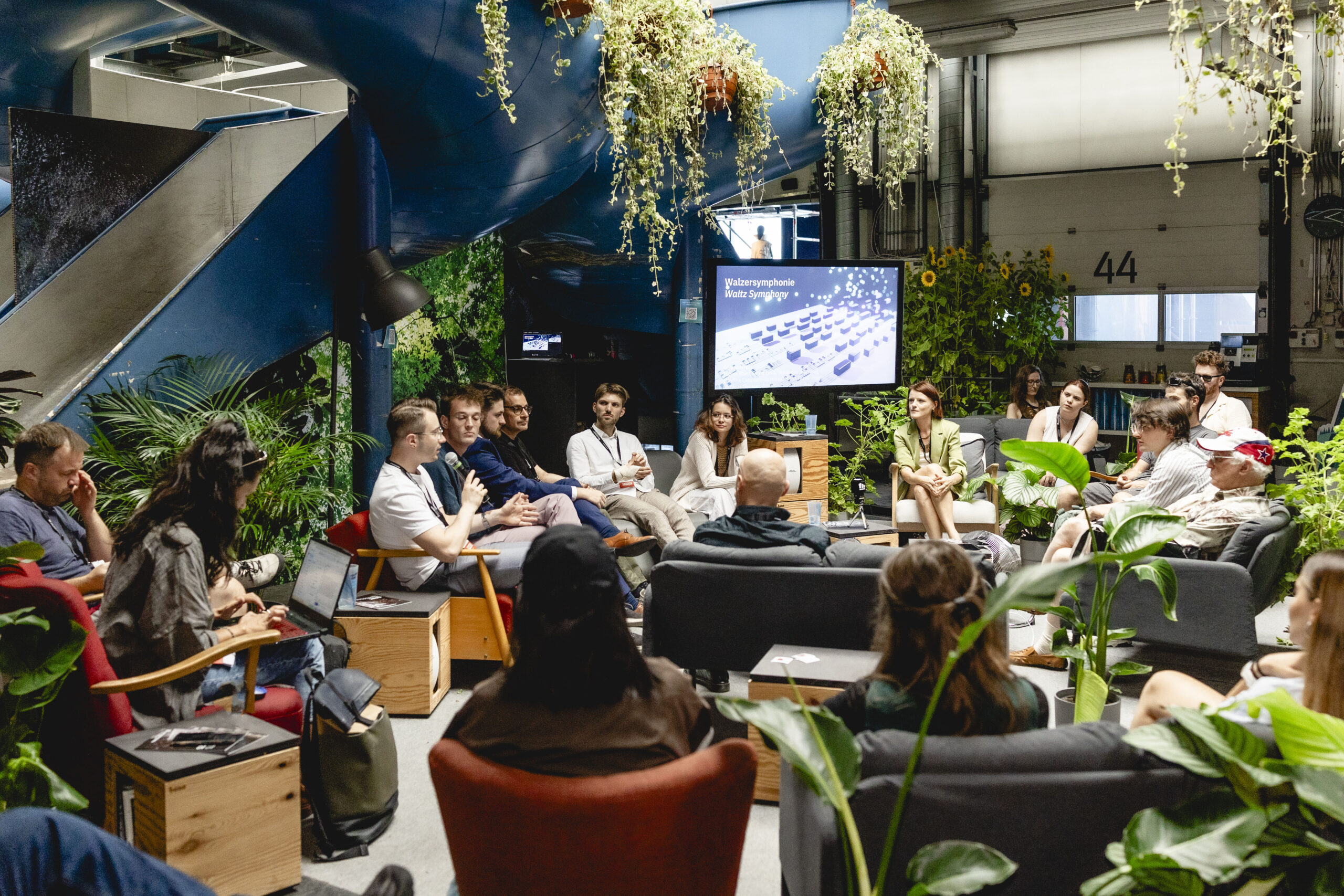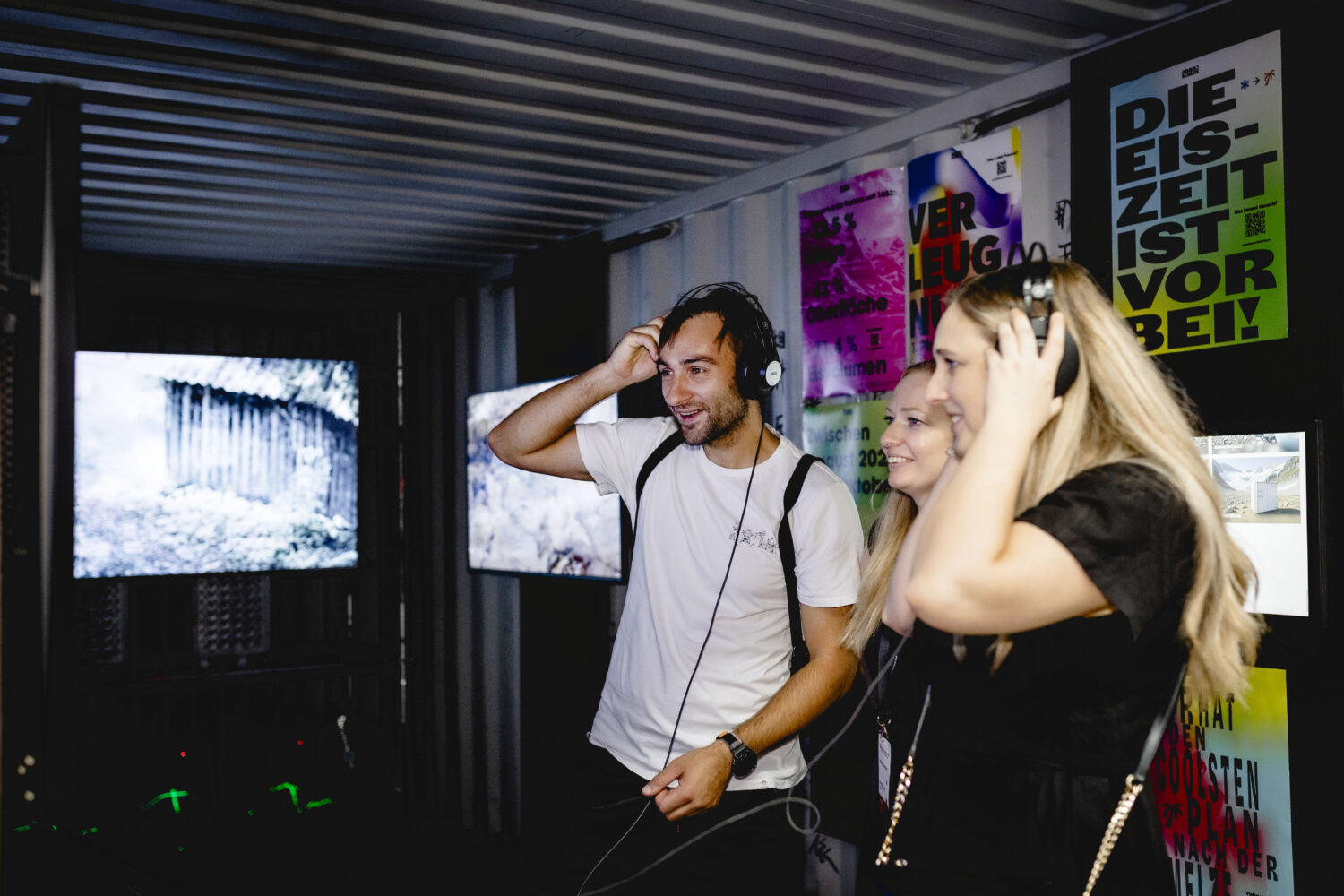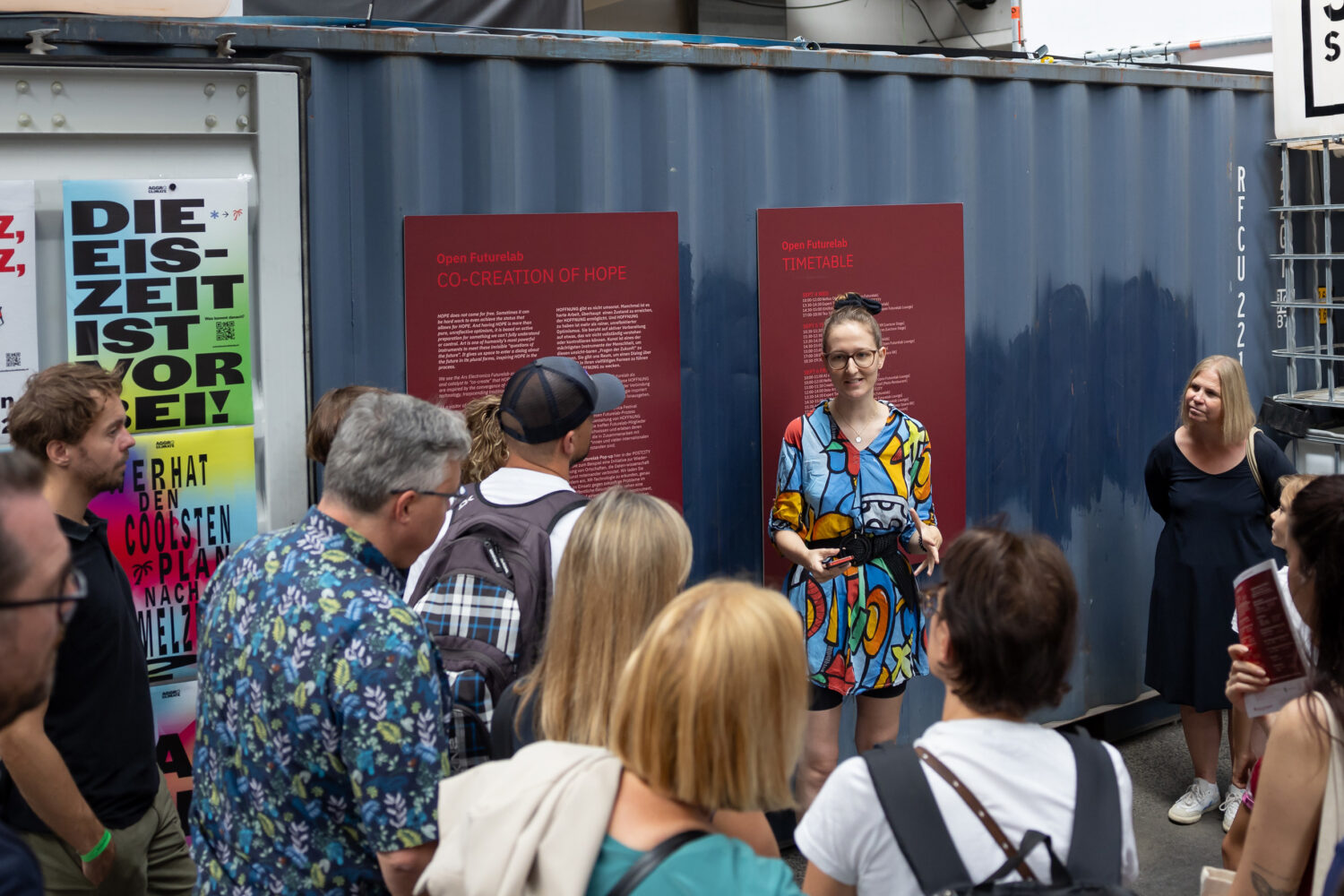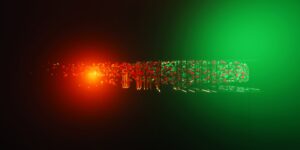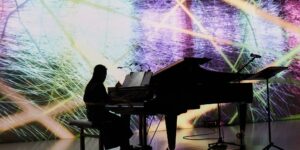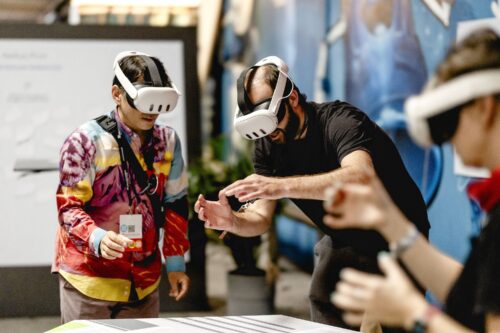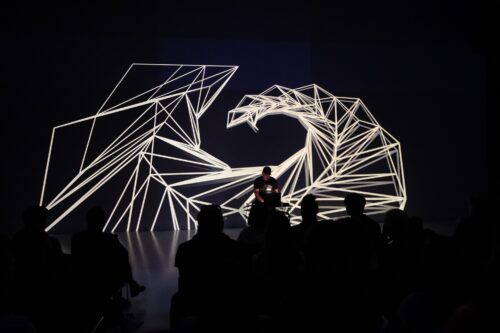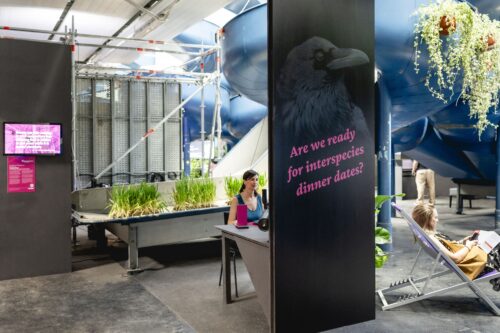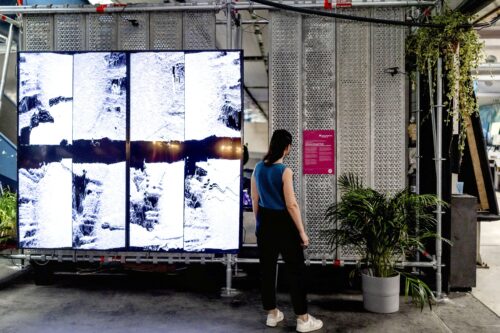At the Ars Electronica Festival 2025 from September 3 to 7, 2025, in Linz, Austria, the Futurelab invited the audience to the Open Futurelab, Deep Space 8K, and the popular Futurelab Night. Festival visitors experienced the lab’s latest works and could also actively participate in its research.
The Ars Electronica Festival 2025 once again turned Linz into an international hub for art, society, technology, and innovation. The Futurelab presented its latest work and ongoing research in the Open Futurelab in legendary POSTCITY – including interactive installations, experimental prototypes, workshops, and talks. At Futurelab Night on Saturday evening, we once again transformed artistic research into immersive experiences and captivating performances.
Futurelab’s works at the Ars Electronica Festival 2025:
“PANIC – yes/no” was the motto of the Ars Electronica Festival 2025. There are countless reasons to panic, as our world is changing at a rapid pace. For some, this means collapse. For others, radical transformation. Or even a new beginning. More about the ideas behind the theme, from the uncertainty of the present to the power of art in times of profound change, can be found on the Festival website. In addition to the Prix Ars Electronica and S+T+ARTS award ceremonies, Festival highlights included the official opening on September 3 in St. Mary’s Cathedral: Musicians from the Bruckner Orchestra Linz performed excerpts from the Walzersymphonie, a Futurelab project that explores artistic co-creation with AI in composition.


Open Futurelab
The Open Futurelab at POSTCITY opened up the potential to change our understanding of systems, technologies, environments, and ourselves with a wide range of works. To shape the future, not by controlling outcomes, but by creating the conditions for change.
From installations and prototypes to workshops, guided tours, and talks, visitors became active participants. They explored the fundamental truth of human experience and machinic reality, as well as the influence of AI personalities on our behavior. Interactive, speculative communication between different species featuring ravens was just as much a part of the Open Futurelab as discussions on how the integration of data, art, and science can promote the collaborative revitalization of rural regions in Japan. Collaborative design was also at the heart of an innovative XR sandbox tool and a new type of city tour that invites people to share their perspectives. In addition, there were new developments in the field of n-dimensional origami robotics that connect Futurelab research with invited artists.


Futurelab Night
At Futurelab Night on Saturday evening in Deep Space 8K at the Ars Electronica Center, the work of Futurelab was presented as a large-scale audiovisual experience in the form of a multisensory dialogue. The members of Futurelab showcased a “future report” on their latest work and projects, including experiments with synchronization and co-presence in hybrid spaces shared with avatars, as well as experiments on how n-dimensional origami can be made visible and audible. The program was once again be complemented by unique performances.
In order to welcome as many visitors as possible to this crowd favorite, Futurelab Night was once again presented in two slots. Some of the works were on display during the day in Deep Space 8K.
Beyond Curiosity – Ars Electronica Futurelab (AT), Linz Tourismus (AT)
NeXus Print – Ars Electronica Futurelab (AT), Dai Nippon Printing (JP)
Walzersymphonie (Waltz Symphony) – Ars Electronica Futurelab (AT) on behalf of Johann Strauss 2025 Vienna (AT), Micha Fazeli-Pour (DE/AT), Fabian Blum (DE)
Corpus Corax – Peter Holzkorn (AT), Nicolas Naveau (FR/AT), Anna Weiss (DE/AT)
Inference Ground Truth – Johannes Pöll (AT), Raphael Schaumburg-Lippe (AT), Simon Schmid (AT)
Foolish Flame – Leon Butler (IE), Peter Power (IE), SHARESPACE Consortium (EU)
Citizen Manifesto – Ars Electronica Futurelab (AT), Hakuhodo (JP)
Oribotics [n-dimensional] – Ars Electronica Futurelab (AT), Matthew Gardiner (AU/AT), Luca Zimmermann (CH), Kanata Warisaya (JP)
Converge 2 – Patrick Berger (AT), Victor Petro (AT), Johannes Pöll (AT), Daniel Rammer (AT), Raphael Schaumburg-Lippe (AT), Cyntha Wieringa (NL), SHARESPACE Consortium (EU)
DAS Data Dining – Ars Electronica Futurelab (AT), DAS Lab (JP)
Beyond Curiosity – Ars Electronica Futurelab (AT), Linz Tourismus (AT)
NeXus Print – Ars Electronica Futurelab (AT), Dai Nippon Printing (JP)
Walzersymphonie (Waltz Symphony) – Ars Electronica Futurelab (AT) on behalf of Johann Strauss 2025 Vienna (AT), Micha Fazeli-Pour (DE/AT), Fabian Blum (DE)
Corpus Corax – Peter Holzkorn (AT), Nicolas Naveau (FR/AT), Anna Weiss (DE/AT)
Inference Ground Truth – Johannes Pöll (AT), Raphael Schaumburg-Lippe (AT), Simon Schmid (AT)
Foolish Flame – Leon Butler (IE), Peter Power (IE), SHARESPACE Consortium (EU)
Citizen Manifesto – Ars Electronica Futurelab (AT), Hakuhodo (JP)
Oribotics [n-dimensional] – Ars Electronica Futurelab (AT), Matthew Gardiner (AU/AT), Luca Zimmermann (CH), Kanata Warisaya (JP)
Converge 2 – Patrick Berger (AT), Victor Petro (AT), Johannes Pöll (AT), Daniel Rammer (AT), Raphael Schaumburg-Lippe (AT), Cyntha Wieringa (NL), SHARESPACE Consortium (EU)
11°22’4″142°35’5″ – Stefan Mittlböck-Jungwirth-Fohringer (AT), Johannes Pöll (AT)
Credits
Ars Electronica Futurelab: Friedrich Bachinger, Patrick Berger, Alexandre Bizri, Kerstin Blätterbinder, Manuel Dobusch, Marianne Eisl, Peter Freudling, Matthew Gardiner, Bernadette Geißler, Barbara Habringer, Peter Haider, Roland Haring, Denise Hirtenfelder, Horst Hörtner, Peter Holzkorn, Susanne Kiesenhofer, Anna Kuthan, Maria Mayr, Valentina Mullabazi, Otto Naderer, Nicolas Naveau, Ali Nikrang, Hideaki Ogawa, Victor Petro, Maria Pfeifer, Johannes Pöll, Daniel Rammer, Erwin Reitböck, Raphael Schaumburg-Lippe, Simon Schmid, Anna Weiss, Cyntha Wieringa
